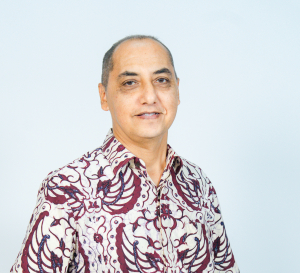Revisiting Freedom versus Harmony Debate: From Asian Values to Decolonization
The debate of freedom versus harmony is decades-old and remains a contested issue in the literature on human rights in general, especially in relation to (individual) freedom of expression, assembly, thought, conscience, and religion. Aspiration for harmony, couched in the notions of peace, social cohesion, and public order, is understood to require certain limitations of freedom, and as such is bound to always be controversial.
My presentation will take a look at how this debate, prominent in the context of Asian Values discourse (of the 1990s), has found its more recent manifestations in newly established laws that aim to create harmony by limiting freedom. Starting with a focus on Southeast Asia, and more specifically Indonesia, I will then look at the deep polarization accompanying a new UN Human Rights Council Resolution (2023) entitled “Countering religious hatred constituting incitement to discrimination, hostility or violence” (in which all Western country members of the Council voted against), and the enactment of new laws restricting freedom in Europe (e.g. in Denmark in 2023 and Scotland in 2024). Despite the polarization, I argue that the new debate points to possible convergences of the “East and West” on new terms, without necessarily defusing freedom-harmony tension.
In my presentation, I will relate this issue of legal restrictions of freedom with the recent discourse on decolonization of human rights, which is critical of the legal (state-centric) discourse, and propose a shift to a people-centric approach for (individual) rights as well as (social) harmony. Decolonization of human rights does not have to be understood as rejecting universalism but, through unsettling the existing order, preparing a better ground for more equal conversations, reflecting the diverse experiences of the participants. In line with the theme of this conference, “Global Asias”, I intend to show how Asian experiences, in all its diversity, may contribute to the global conversation meaningfully.
Biodata
Zainal Abidin Bagir is the current director of the Indonesian Consortium for Inter-religious Studies, Yogyakarta, a consortium of Universitas Gadjah Mada, State Islamic University Sunan Kalijaga, and Duta Wacana Christian University. His two main interests relate to the issue of democratic management of religious diversity and religion and ecology. With Robert W. Hefner, he co-edited a book titled Indonesian Pluralities: Islam, Citizenship and Democracy (University of Notre Dame Press, 2021) and co-produced a series of documentary films with the same title (2019-2023) in the collaboration between the Center for Religious and Cross-cultural Studies – UGM, Boston University, and Watchdoc Documentary. Two recent books in Bahasa Indonesia he co-edited are Politik Moderasi dan Kebebasan Beragama (2022) and Mengelola Konflik, Memajukan Kebebasan Beragama (2024). On religion and ecology, he co-edited (with Michael Northcott and Frans Wijsen) a book titled Varieties of Religion and Ecology: Dispatches from Indonesia (LIT Verlag, 2021).

 Wed. July 10, 2024 @6:00 pm – 7:00 pm
Wed. July 10, 2024 @6:00 pm – 7:00 pm Grha Sabha Pramana (GSP) 2nd Floor, Universitas Gadjah Mada
Grha Sabha Pramana (GSP) 2nd Floor, Universitas Gadjah Mada